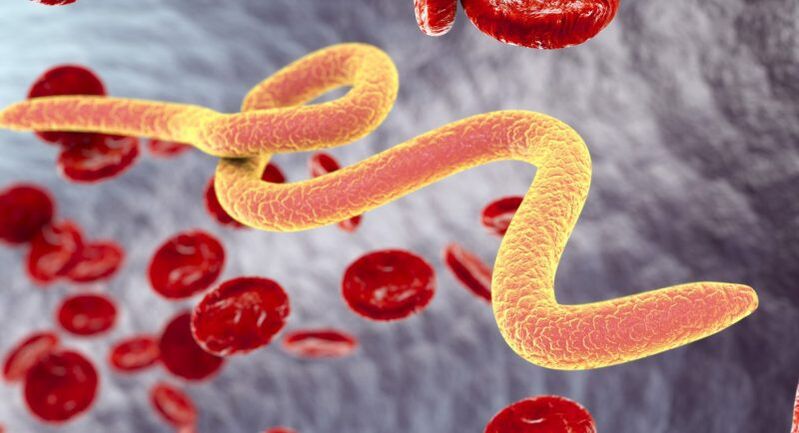Symptoms of dangerous neighborhoods

- Weight loss usually occurs in the context of a decrease in appetite, but people often notice an increase in appetite while losing weight.
- Anemia occurs due to a massive infection with parasites, which leads to a lack of nutrition in the body.
- Indigestion, a person notices frequent diarrhea that alternates with constipation.
- The development of problems related to digestive tract dysfunction.
- Persistent discomfort under ribs on right side.
- Symptoms of arthritis include muscle and joint pain.
- The appearance worsens and skin damage occurs in the form of rash, redness, or peeling.
- As immunity decreases, the number of infectious diseases increases.
- Allergic reactions due to poisoning by parasitic waste products.
- Lack of important trace elements and vitamins leads to deterioration of personality, irritability and aggression.
- Decreased performance, feeling persistently fatigued, and lethargic.
- Sleep disturbance and decreased ability to concentrate.

How do parasitic infections occur?
- Eat raw greens, fruits and vegetables. Large numbers of parasites are transmitted to humans through the consumption of poorly processed plant foods. This occurs due to the spread of infection from contaminated soil. To protect yourself, it's important to handle vegetables and fruits carefully and wash your hands before eating.
- drink dirty water. To reduce the risk of infection, it is important to drink only boiled water. When visiting developing countries, you should only drink bottled water. You should not swim in an unknown body of water, especially if the health department prohibits swimming in certain water sources.
- Consumption of half-raw meat and fish products. Some parasites are spread this way. To protect yourself, it is important to avoid unprocessed meat; only eat products that have a quality certificate and have been tested by health authorities. During the cooking process, the heat should be observed and the product should be stir-fried (cooked) thoroughly.
- Contact with an infected person. Some helminthiasis are spread through household contact. The most common group of people that people contract from sick people are pinworms. Diseases such as cysticercosis are also common. To protect yourself from infection, wash your hands before each meal or after visiting crowded places, and do not eat food prepared by strangers at spontaneous markets or questionable restaurants.
- Contact with feces or skin parasites from infected animals. To protect yourself, it's important to observe hygiene carefully and treat your pet's fleas systematically.

Diagnostic methods: traditional methods
- roundworms;
- Whipworm;
- tapeworm;
- tapeworm;
- fluke;
- Schistosomiasis.
Donating feces doesn't always work; some people dislike this simple procedure and find it very unpleasant. Therefore, it is necessary to understand how to detect parasites through other means.
Diagnostic methods: new options

- X-rayorEndoscopy (biopsy)Helps identify parasites in internal organs.
- polymerase chain reaction. A sample of saliva, blood, or secretions is taken to determine the parasite's DNA. Through analysis, we can determine the type of parasite.
- Linked immunosorbent assayMakes it possible to identify antigens. This technique allows you to achieve very high results. In addition to identifying parasites, analysis also helps determine the type of parasite, the number of diseased individuals, and developmental characteristics.
- bioresonance research. This technique allows you to confirm the presence of parasites in the body, but not their type, location, or quantity.
Correct behavior when infected






















